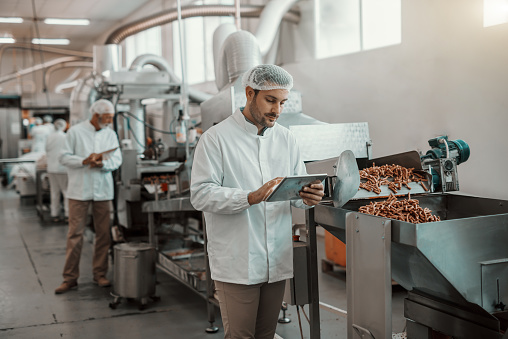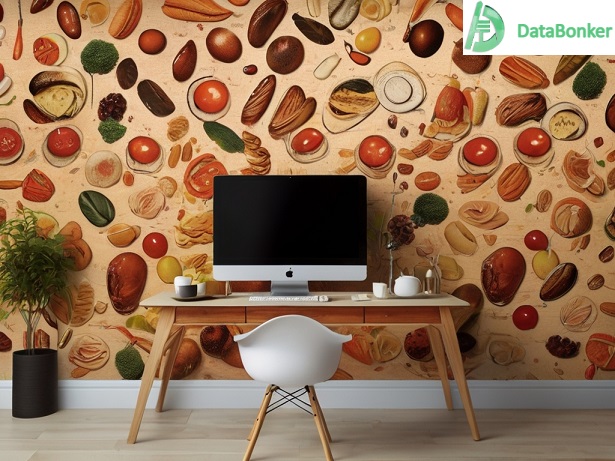What is Food Technology? How Technology is transforming the Food Industry: Technology has also invaded the food business and has aided it in numerous ways. We frequently discuss emerging technologies and their implications in hospitality, medicine, and information technology, but few are aware that food science and technology is also having a significant impact on the food business.
Key Takeaways:
In this article, we will explore:
- What is Food Technology?;
- Focus areas in food technology;
- Importance of food technology;
- What are the different ways Food Industry is utilizing technology;
- Technologies that are influencing Food Industry and their Impact;
What is Food Technology?
The application of scientific and technical concepts to the processing, preservation, packaging, and distribution of food items is known as food technology.
It entails the application of a variety of technologies, including biotechnology, chemical engineering, and microbiology, to improve the quality, safety, and nutritional value of food items.

Some of the areas of focus in food technology include –
- Food processing is transforming raw components into food items using a variety of processes. Techniques like canning, freezing, drying, and baking are included.
- Food preservation entails employing numerous strategies to limit microbial development and increase the shelf life of food goods. Refrigeration, pasteurization, and irradiation are a few examples.
- Food packaging is the design and construction of packaging materials and containers that protect food goods from contamination, keep them fresh, and provide customers with information.
- Food safety entails ensuring that food items are free of dangerous toxins and pathogens, as well as that they meet regulatory criteria.
- Nutritional analysis is determining the nutritional content of food products using scientific methods and proposing strategies to improve their nutritional worth.
Food technology is critical to addressing worldwide demand for safe, nutritious, and inexpensive food items, as well as maintaining food security for future generations.
Importance of Food Technology
From planting and harvesting through manufacturing and packing, technology has enabled a more streamlined and effective production process.
Changes in food consumption patterns: Technology has also contributed to a shift in people’s food consumption habits.
Food technology is significant for a number of reasons:
- Increased food safety: Food technology aids in ensuring that the food we consume is safe to consume. We can avoid contamination and the development of hazardous bacteria that can cause foodborne diseases by adopting contemporary food processing and preservation procedures.
- Food security: With a growing global population and limited agricultural area, food technology allows us to produce more food with fewer resources. Genetic engineering and precision agriculture can boost crop yields and increase farming efficiency.
- Increased nutritional value: Food technology helps us to create new, better, and more nutritious food items. For example, we may fortify meals with key vitamins and minerals to help avoid nutrient shortages, or we can produce vegan and vegetarian alternatives using plant-based components.
- Food technology can assist to increase the shelf life of food items, minimizing food waste, and boosting food supply in locations where storage and transportation are difficult.
- Convenience: With developments such as ready-to-eat meals, meal kits, and home delivery services, food technology has made it easier for customers to prepare and consume food.
Ultimately, food technology is critical to ensuring that we have access to safe, nutritious, and sustainable food in the present and future.
How Food Industry is using Technology
From the farm to the table, technology is altering the food sector in several ways. These are some ways technology is being utilized to improve food production, delivery, and consumption:
1. Precision Agriculture:
It refers to collecting data regarding crop growth, soil conditions, and weather patterns using technology such as sensors, drones, and GPS. This information can assist farmers in optimizing resource use, reducing waste, and increasing agricultural yields.
2. Robotics
Robots are being utilized to automate processes such as sorting, retort packaging, packing and labeling in food processing and manufacturing. This can improve efficiency while also lowering the danger of contamination.
3. 3D printing
This technology is used to manufacture customized food products such as nutrition bars and cakes. Food with unusual forms and textures may also be created using 3D printing.
4. High Pressure Processing (HPP)
High-pressure processing (HPP) is a food processing technology or a technique, that is commonly used in the food industry. It is a technique of applying non-thermal pasteurization method, that uses high levels of hydrostatic pressure to inactivate and minimize the bad affects of harmful microorganisms, bacteria, and enzymes in food products.
The high pressure processing involves packaging food to elevate pressures, typically between 60,000 and 100,000 pounds per square inch (psi). Which helps in extending the shelf life of food and retaining its nutritional value, core content and sensory characteristics.
This technique is mostly employed to products like juices, deli meats, guacamole, and other perishable items.
5. Biotechnology
It is being utilized to generate crops that are more resistant to pests and diseases and have superior nutritional characteristics.
6. Meal kits and food delivery
Technology is changing the way we order and receive meals. Algorithms and data analytics are used by online delivery services and meal kit providers to forecast client preferences and improve delivery routes.
7. Food safety
Tools and technologies such as blockchain technology and traceability systems that can monitor food items from farm to table, as well as sensors that can identify pathogens in food, are being utilised to improve food safety.
Overall, technology is becoming increasingly crucial in the food sector, helping to enhance productivity, minimise waste, and provide customers with safe, nutritious, and sustainable food.

Technologies that Impact the Food Industry
Several technologies are having influenced the food business in various ways. These are a few of the most notable:
- Artificial Intelligence (AI): In the food business, AI is being used to assist forecast customer demand, optimize production, and increase supply chain efficiency. It may also be used to assess food safety data, such as temperature and humidity monitoring in storage facilities, to identify possible problems before they become significant.
- Blockchain: This technology is being utilized in the food business to increase traceability and transparency. It can aid in tracking the origin of components, verifying food safety claims, and ensuring that food products are manufactured and delivered in accordance with regulatory standards.
- Robots and automation: These are being utilized in food production to increase productivity and cut labor costs. They are especially helpful for repeated chores like sorting, packaging, and labeling.
- Internet of Things (IoT): Internet of Things (IoT) technology is being used in the food business to monitor environmental factors such as temperature and humidity in order to avoid rotting and guarantee that food items are transported and stored securely.
- Gene editing technology is being utilized to generate crops that are more resistant to pests and diseases, have better nutritional profiles, and can be farmed in a more sustainable manner.
- Food Delivery Platforms: Technological advancements have enabled the growth of food delivery platforms such as Uber Eats, Grubhub, and DoorDash, which are revolutionizing how customers order and receive meals.
- 3D printing is being utilized to manufacture personalized food products such as personalized nutrition bars, cakes, and chocolates.
These are just a handful of the technologies influencing the food sector. As technology advances, we may expect even more innovations to assist enhance the safety, quality, and sustainability of our food supply.
Impact of Technology on the Food Industries
Technology’s effects on the food business are varied, ranging from improved food safety and manufacturing efficiency to the invention of new food items and the modification of how people order and consume food.
Following are some of the most significant effects of technology on the food industry:
- Food safety is being improved by using sensors, data analytics, and blockchain technology to identify possible dangers and detect contamination at various stages of the food supply chain.
- Automation, robotics, and precision agriculture are being utilized to maximize resource utilization and eliminate waste, resulting in higher production efficiency and lower prices.
- Improved nutritional value: Technology such as gene editing and precision nutrition is being utilised to create new food items with enhanced dietary profiles, such as pest and disease-resistant crops and tailored nutrition bars and supplements.
- New food items: 3D printing, gene editing, and other technologies are being utilised to develop novel food items that are tailored to individual tastes and dietary requirements, such as plant-based meat substitutes and vegan cheeses.
- Convenience: Technology is changing the way we order and consume food, with online delivery services, meal kits, and smartphone ordering platforms making it easier and easier to obtain what we want when we want it.
- Improved sustainability: Technology, such as precision agriculture and vertical farming, is being utilised to decrease food waste, enhance crop yields, and produce more sustainable production techniques.
Conclusion: Food Technology
Overall, technology is having a significant influence on the food sector, allowing us to produce, distribute, and consume food in a more efficient, sustainable, and safe manner.
Yet, it is critical to continue monitoring the possible hazards and ethical implications of new technologies in order to ensure that they are developed and utilized responsibly and sustainably.
Technology is becoming increasingly crucial in the food sector, and this trend is not likely to change very soon. Technology is being used by food firms and brands to produce new products, enhance quality control, and make the supply chain more sustainable.
As technology advances, we should expect even more advancements in the food business in the next years.
- Manga vs Anime: Which is Better and Which Should You Dive Into First? - December 6, 2023
- 10 Must-Watch Classic Animes for New Fans - September 16, 2023
- Most Satisfying Bedroom Gadgets for Ultimate Relaxation - August 23, 2023

